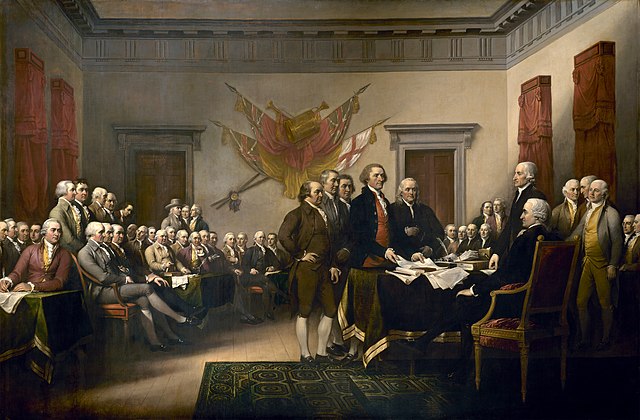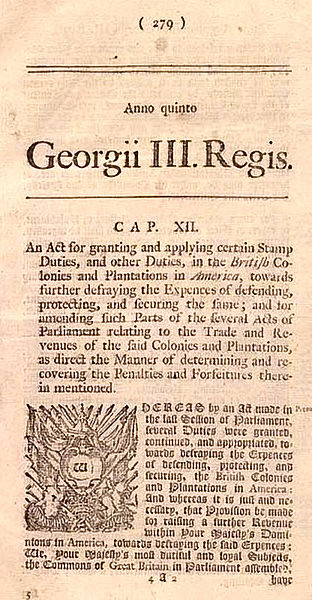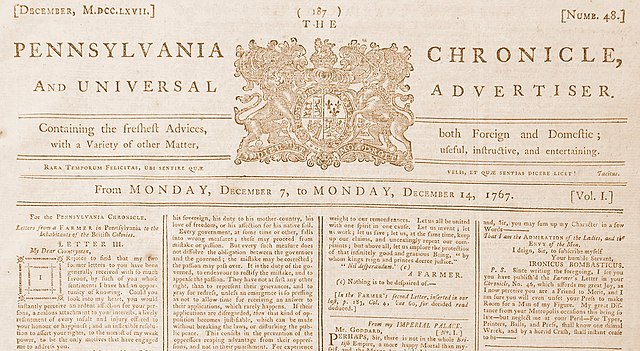Samuel Huntington (Connecticut politician)
Samuel Huntington was a Founding Father of the United States and a lawyer, jurist, statesman, and Patriot in the American Revolution from Connecticut. As a delegate to the Continental Congress, he signed the Declaration of Independence and the Articles of Confederation. He also served as President of the Continental Congress from 1779 to 1781, President of the United States in Congress Assembled in 1781, chief justice of the Connecticut Supreme Court from 1784 to 1785, and the 18th Governor of Connecticut from 1786 until his death. He was the first United States governor to have died while in office.
Samuel Huntington (Connecticut politician)
The house where Huntington was born in Scotland, Connecticut Colony
The American Revolution was a rebellion and political movement in the Thirteen Colonies which peaked when colonists initiated an ultimately successful war for independence against the Kingdom of Great Britain. Leaders of the American Revolution were colonial separatist leaders who originally sought more autonomy within the British political system as British subjects, but later assembled to support the Revolutionary War, which successfully ended British colonial rule over the colonies, establishing their independence, and leading to the creation of the United States of America.
The Committee of Five presenting its draft of the Declaration of Independence to the Second Continental Congress in Philadelphia on June 28, 1776, depicted in John Trumbull's 1818 portrait, Declaration of Independence
Notice of the Stamp Act 1765 in a colonial newspaper
Letter III of John Dickinson's Letters from a Farmer in Pennsylvania, published in the Pennsylvania Chronicle, December 1767
On June 9, 1772, the Sons of Liberty burned HMS Gaspee, a British customs schooner in Narragansett Bay.






